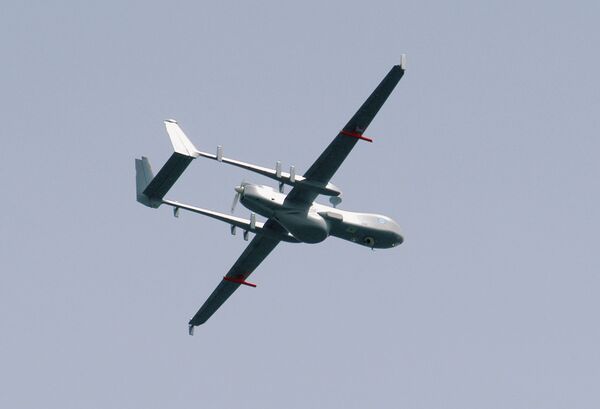
The Heron medium-altitude long-endurance unmanned aerial vehicle manufactured by Israel Aerospace Industries (IAI) is a success story for Israel, with 15 or more countries known to be operating the systems. (Janes/Patrick Allen)
Demand for Israeli-made defence systems has increased significantly in the past five years, with the value of government-to-government agreements amounting to USD4 billion in 2022, up from USD412 million in 2018, Brigadier General (Res) Yair Kulas, director of the Israeli Ministry of Defense International Defense Cooperation Directorate (SIBAT), told Janes at the Paris Air Show 2023.
Total defence exports surpassed USD12.54 billion, up from USD11.3 billion in 2021. Asia-Pacific took the largest share of orders (30%), narrowly ahead of Europe, which accounted for 29%, and countries from the Abraham Accords (Bahrain, Israel, Morocco, Sudan, and the United Arab Emirates) 24%, he said.
Unmanned aircraft systems (UASs) accounted for 25% of total defence exports in 2022, while missiles, rockets, and air-defence systems represented 19%, and radars and electronic warfare (EW) systems 13%. In contrast, in 2021 missiles, rockets, and air-defence systems accounted for 20% of total exports, training and services 15%, and UASs just 9%, he added.
Asia-Pacific was similarly Israel's largest customer base in 2021, followed by Europe. However, exports to the Abraham Accords countries grew by 17% from 2021 to 2022.
When asked about Israel's support to Ukraine, Brig Gen Kulas said they had provided humanitarian aid, including “armoured ambulances specifically intended for the Ukrainian rescue forces. Additionally, the aid packages comprised helmets, protective vests, protective suits for mine clearance, gas masks, CBRN [chemical, biological, radiological, and nuclear] filters, and other essential civilian supplies. Israel's focus lies solely on defensive solutions and humanitarian assistance”.
Looking to read the full article?
Gain unlimited access to Janes news and more...







